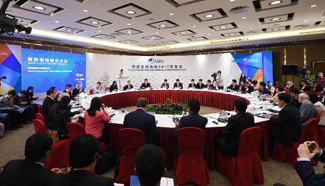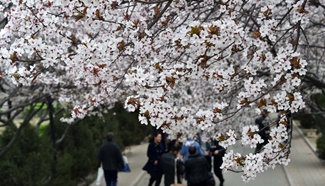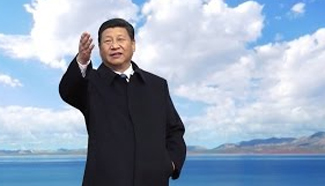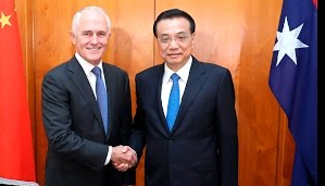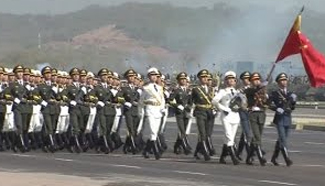By Sportswriter Liu Yang
BEIJING, March 24 (Xinhua) -- China's 1-0 victory over South Korea on Thursday night rekindled the country's qualification hopes for the 2018 World Cup, and represents an early success in China's national soccer reform push that began in 2015, and shows that the foundations are being laid for future success.
China's soccer reform aims to transform the country into a world soccer powerhouse by 2050. Chinese Football Association (CFA) head Cai Zhenhua believes the reform is starting to show results, but says tough tasks remain on the road ahead.
CFA'S SELF-REFORM STARTS THE ENGINE
China's surprise victory over South Korea is the product of self-starting intuitional reform on the part of the country's soccer organs. A major milestone in this reform was the CFA's being granted independence from government.
The shift saw the CFA transform from a governmental body into a societal one, and ushered in changes in the organization's management and functions. It launched a historic recruitment drive in a bid to professionalize the league. As of now, 75 percent of regional football associations around the country have become independent from local governments.
The CFA is now organizing a "big national team system", grouping together preparatory teams for different age groups including U23, U22 and U19, in addition to the current national team.
Liu Dianqiu, director of the CFA national team managing department, told Xinhua that the preparatory team won't attend big events, but will train and take part in invitationals. The U22 team members can also play games while representing different clubs.
The CFA will introduce coaches from Italian legend Marcello Lippi's group to U22 team, which is expected to achieve a more unified management, organization and technical style with the national team.
The CFA also plans to choose a technical director to manage the technical development of Chinese soccer. Lippi is assumed to be a top candidate, and is expected to make plans for youth training and grassroots soccer.
SOCCER INDUSTRY SOARING
The 2016-2020 television rights to the Chinese Super League (CSL) were sold at a stunning 8 billion yuan, and CSL broadcasts now reach 96 countries and regions around the world. More capital is flowing into the league in the form of team sponsorships.
Official data shows that the average audience size per game this season was 24,000. That's an increase of 2,000 over 2015 and the largest of the Asian domestic leagues. In addition, the games were streamed 284 million times via the internet.
The CSL has introduced many foreign coaches and players to improve the level of competition. Organizational work like warm-ups, starting-list releases, mixed-zone interviews and news briefings have all been informed by FIFA standards.
The CFA blueprint details how China is taking steps to construct a professional soccer ecosystem. The country boasts 6 leagues at different levels of play, allowing youngsters to train and move up the hierarchy as they progress.
The CFA has taken measures to offer more opportunities for young Chinese players, and clubs, realizing the importance of youth training, are willing to put forward more long-term investment in support of this aim.
Former player for the national team Ma Mingyu recommends offering compensation to support the youth training clubs. "We should build more standard soccer pitches and establish a consistent training system for youth," said Ma.
SOCCER INSPIRES A GENERATION
The future success of Chinese soccer depends on efforts to help the sport flourish at the grassroots. China's impressive victory over South Korea itself will encourage more youngsters to love play the sport.
The Chinese Ministry of Education announced a plan to raise the number of schools characterized by an emphasis on soccer to 20,000 by the end of this year and to 50,000 by 2025. It also pledges to build around 200 college soccer teams in the future.
China unveiled an ambitious blueprint in 2016 to get 50 million children and adults playing soccer by the end of this decade. 16,000 school principals, PE teachers, campus coaches and referees have received training and 115 foreign soccer coaches were hired by Chinese schools in 2016.
Meanwhile, 44 regional football associations organized amateur league games in 2016 and about 400,000 players from 30,000 teams took part in the competitions.
Former national team player Sun Jihai told Xinhua he believes that grassroots reform will take time, but says that China is placing emphasis in the right places.
"Now we are back on the way to Russia, albeit with a tiny chance. We should keep the reform moving forward, especially in the area of youth training," said Sun.
"We have the money to make soccer a booming business. Now we must face the tougher task of increasing the number of people playing, and improving the level of play step by step, generation by generation," Sun added.

